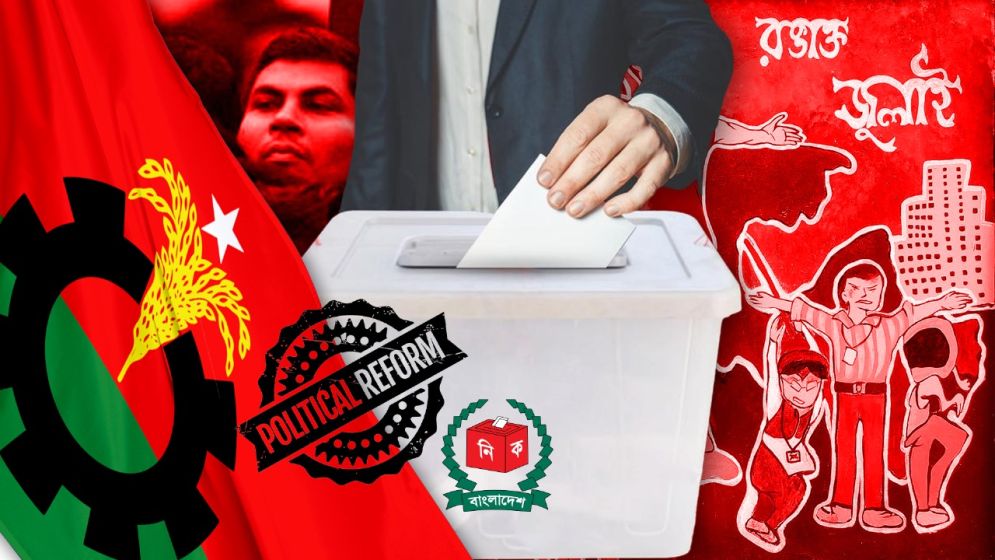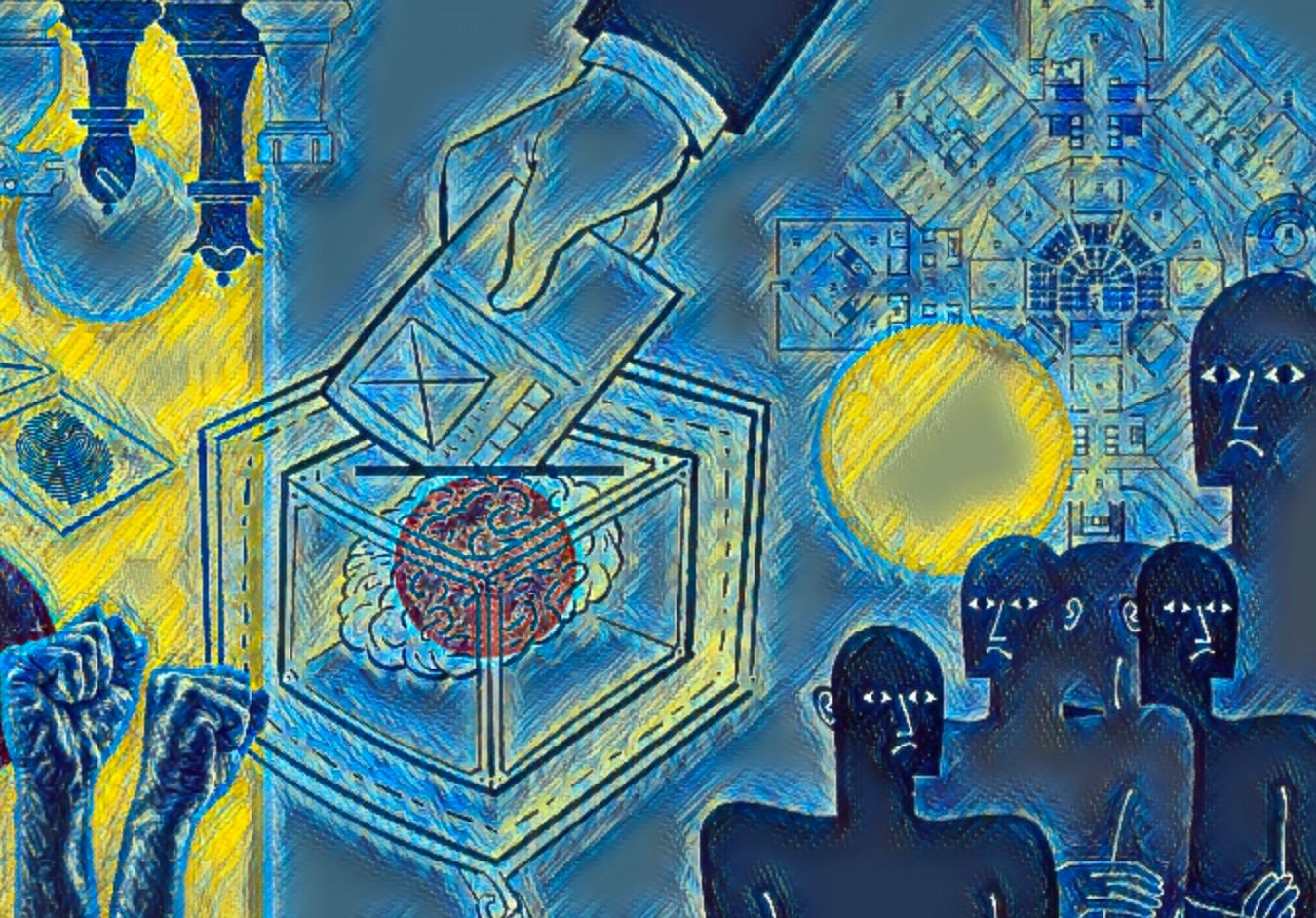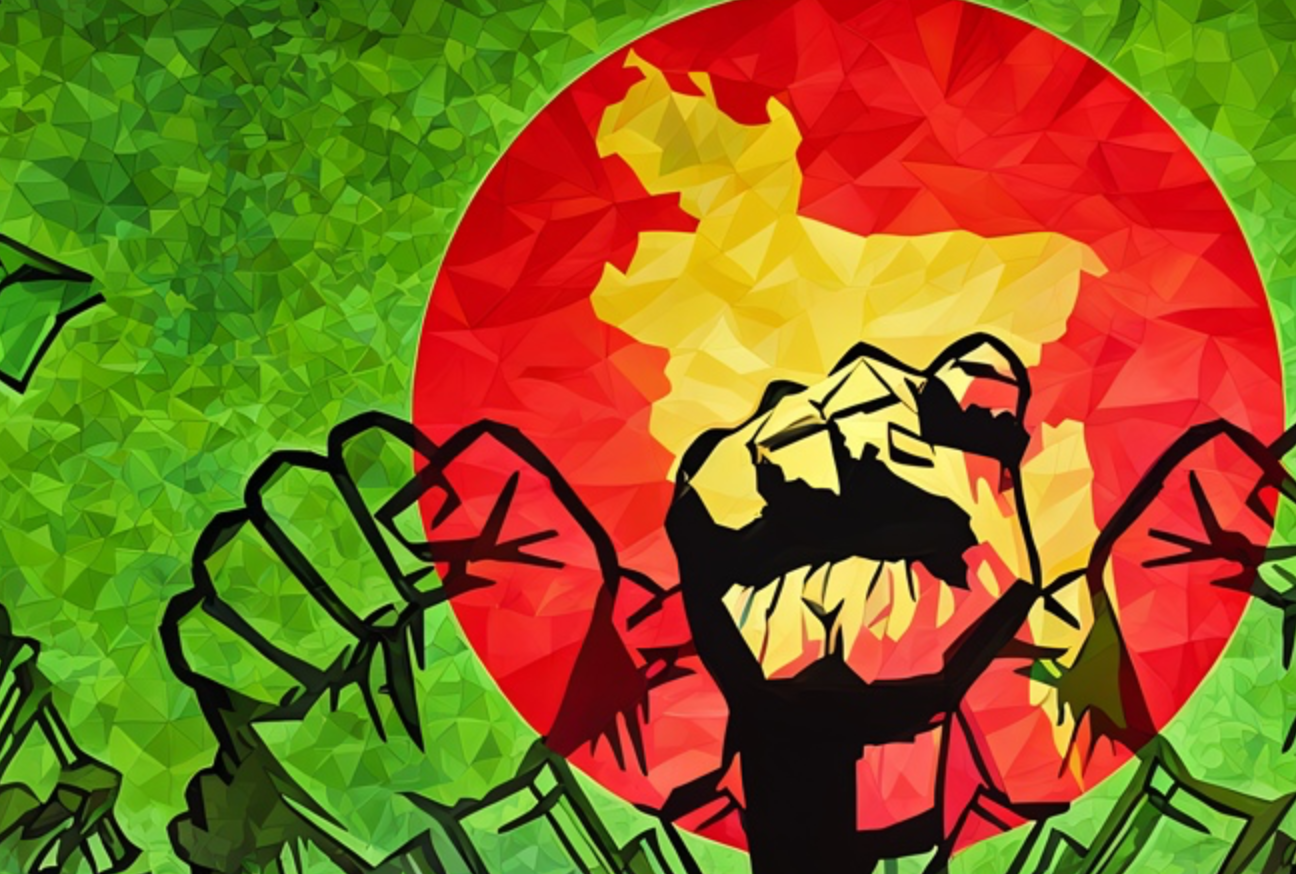Why is there a misleading campaign suggesting BNP opposes political reforms?

In recent weeks, Bangladesh's social media space has been filled with misconceptions about the Bangladesh Nationalist Party's (BNP) position on reforms.
While some overly critical, and sometimes misguided, social media discussions have painted BNP as a party solely focused on seizing power without seriously considering the necessary reforms to rebuild Bangladesh after the fascist regime of Awami regime, the reality is quite different.
Allow me to ask you a few questions, and through the answers, I will clarify BNP's true stance on these issues.
(1) Which political party first proposed a bicameral parliamentary system in Bangladesh in the current political context?
Answer: The idea of a bicameral parliament was first proposed in BNP's Vision 2030, developed in 2016, specifically in its sixth point.
This proposal was later reiterated in the 27-point declaration by Acting Chairman Tarique Rahman in 2022 and again in the 31-point declaration in 2023.
(2) Did BNP also propose a fixed term for the Prime Minister’s tenure?
Answer: Yes – The fifth point of the 31-point declaration clearly states that no individual should serve as Prime Minister for more than two consecutive terms.
This proposal, made by Tarique Rahman, the inevitable “Prime Minister would be” chosen by the people, was introduced during a period of fascism when Sheikh Hasina was resorting to unprecedented levels of enforced disappearances, killings, attacks, and repression to maintain her illegal hold on power.
If one could look back at that violent time, the significance of this progressive proposal would be clear.
(3) What did BNP propose regarding the reduction of the Prime Minister's powers in the 2016 Vision 2030 and the 31-point declaration?
Answer: In the existing constitutional framework, where all executive powers are concentrated in the Prime Minister, BNP has been advocating for a more balanced system, opposing the concentration of power for the past decade.
Under Sheikh Hasina’s leadership, the concentration of executive power has led to an authoritarian, autocratic regime under the guise of a parliamentary government.
BNP's 31-point policy includes reforms such as amending Article 70 of the Constitution, forming an all-party parliamentary committee for vetting key state appointments, and creating subject-specific reform commissions to introduce checks and balances in executive power.

A reality check
Now, let’s take a reality check and ask some more questions...
(1) If BNP is the primary proponent of most fundamental reforms, why is there a campaign claiming that BNP does not want reform?
Answer: In a democratic system, the true and lasting solution to any meaningful change or reform is national elections.
Therefore, while reform and elections are part of an ongoing process, the narrative that pits reforms against elections–thus delaying national elections and extending the denial of the people’s right to vote–raises concerns about the potential hidden agenda behind this effort.
Two years ago, when the necessary reforms seemed unimaginable, BNP and its allied parties had already presented a comprehensive 31-point reform plan for the state’s restructuring. This plan was rooted in BNP’s Vision 2030 from 2016.
If today someone claims BNP does not want reform because of differences in how to implement those proposals, it would be worth investigating whether these claims are driven by ignorance, propaganda, or political maneuvering.
(2) Why has the BNP proposed a ratio of seats from the lower house for the upper house in a bicameral parliament?
Answer: The primary goal of a bicameral parliament is to include successful professionals in state governance, such as respected doctors, engineers, professors, lawyers, intellectuals, cultural workers, human rights activists, and others.
The idea is not to appoint defeated candidates from the lower house to state positions. Proportional representation is a concept that is unfamiliar in Bangladesh's political tradition, so when implementing the upper house, the priority should be given to a seat-based system that is more comprehensible to the people, rather than engaging in an experimental approach.
Over time, once the upper house system matures and the public gains a better understanding, the nomination process can be reviewed based on national unity, and issues like cut-offs or thresholds may be considered.
(3) What is BNP's position on the trial of the Awami League?
Answer: Over 16 years of fascist rule and during the mass uprisings, BNP, as the party that has suffered the most with martyrs, injuries, and victims of enforced disappearances, killings, attacks, and lawsuits, has consistently stated that the Awami League and its leadership must face trial for crimes against humanity.
It remains a mystery why there has been no visible progress in the past seven months and why the judicial process has stalled.
It is crucial to ensure that this most significant judicial process is conducted in accordance with standards, remains sustainable, is not influenced by domestic or foreign conspiracies, and that the guilty receive the maximum punishment.

The real stance of BNP
(4) So, what is BNP's stance on reforms?
Answer: BNP’s stance on reforms shows that the party is not focused on engaging in populist politics with empty promises to please others. Instead, they are advocating for what is realistically achievable.
If free and fair elections take place, BNP’s victory is inevitable, and the new government will be held accountable for implementing reforms, Insha'Allah. This pragmatic and sustainable approach may appeal to some and not to others; this is the essence of democracy.
However, the only way to understand what the people find acceptable is to allow them the opportunity to vote through national elections.
More important than the theoretical and sometimes isolated ideologies of specific individuals or groups is the process of building a deep connection with the people, ensuring their empowerment, and fulfilling their aspirations.
Through a series of consultations, dialogues, and feedback exchanges with people from all walks of life, the 31-point proposal has become the foundation for our public engagement and the shaping of public opinion regarding the state’s reform journey.
(5) What is the relationship between reform and elections?
Answer: Democracy is a process where every individual has the opportunity to express their opinion, and political parties can freely present their positions on reforms, public welfare, development, and other matters.
Through elections, the majority of the people will decide what is acceptable, feasible, and how the government and country should be governed.
Therefore, while embracing the diversity of differing opinions and paths, all democratic political parties should present their visions and reform proposals to the people.
If the people support these ideas through their votes, elected representatives will implement these reform promises, fulfilling their commitment to public mandates and electoral accountability—that is the rule of democracy.
Thus, let us not use reforms as a deliberate tool to delay elections, but rather consider elections as essential for the sustainable implementation of reforms.
—
Dr Mahdi
Amin is an advisor to the Acting Chairman of Bangladesh Nationalist Party (BNP)

